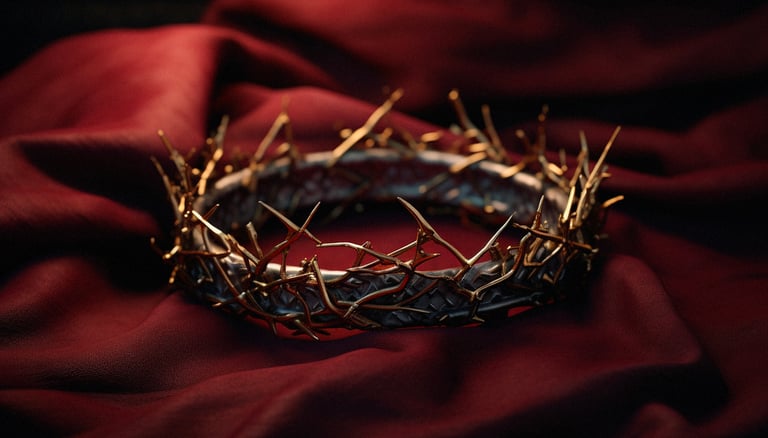Was Jesus a rebel?

24.10.2023

From politics to pop culture, FOLIO regular William Raynar examines rebellion through the ages.
A rebel is a temporary state that does not survive the test of time. One either becomes a saint, a ruler, a myth or, more prosaically, an adult. Rebels are catalysts that ignite revolutions or burn as martyrs (think Che Guevara or Joan of Arc). History echoes with dissident voices: Spartacus leading slaves to revolt, Rosa Parks refusing to yield her seat, Malala defying bullets for education, Harvey Milk, LGBTQ+ advocate and California’s first openly gay elected official.

Some would say Jesus was the original rebel. To the Pharisees, he was, for sure. His followers whispered of miracles: the blind seeing, the lame walking. In his parables, he glimpsed a radical vision - a kingdom not of earthly dominion but of compassion and forgiveness. The Pharisees were no longer the only pathway to God and their temples were questioned. To the Romans, his kingdom threatened their order, yet his weapons were not gladius or pilum. Instead, he wielded compassion and healed wounds deeper than flesh. He was difficult to fight. Jesus bore a cross up Golgotha; a rebel crowned with thorns. To the Christians, his blood washed away sins - the ultimate act of rebellion against death itself. Yet although Jesus was seen as a rebel in his day, history has transcended him into something else, depending on your beliefs.

To exist, a rebel needs to rise against some sort of authority or dictatorship, whatever form that takes. In Prague during Spring 1968, an anonymous protester stood in front of a Soviet tank holding a banner that read “For our freedom and yours”. A simple act, it was repeated just over two decades later in Beijing, June 1989, when a solitary figure only known as Tank Man stood in front of a column of Type 59 tanks during the Tiananmen Square protests. His act of defiance against the Chinese government’s violent crackdown on pro-democracy demonstrators became an iconic symbol of courage and resistance. Democracies tend to defuse the emergence of rebels unless minorities are not respected so it’s telling that in recent years, more advanced democracies are seeing the surfacing of a “dictatorship of minorities.”
From religion and politics to pop culture, what unites rebels throughout time is the very act of subversive behaviour itself, even if how that is manifested varies dramatically. For instance, from the 1950s to the 1970s, rebellion was synonymous with riding a motorbike, and therefore associated with a bid for freedom from the rules and restraints imposed by society. Watch any movie from that era and the main rebellious characters always drove a motorbike: Marlon Brando in “The Wild One” (1953), Steve McQueen in “The Great Escape” (1963), Dennis Hopper in “Easy Rider” (1969), and Pete Townshend in “Quadrophenia” (1973).

More recently, challenging the norm seems to mean making a stand against society’s increasingly politically correct narrative. It’s something that many are loath to do but some names spring to mind. Canadian psychologist and professor Jordan Peterson who gained prominence by resisting the use of gender-neutral pronouns. Evolutionary biologist and former professor at Evergreen State College Bret Weinstein who found himself at the centre of controversy in 2017 when he objected to a proposed “Day of Absence” where white students and faculty were asked to leave campus. And Matthew Tuttle, a financier who is launching “anti-woke” ETFs that have delivered Nasdaq + 300bps (see his interview in this FOLIO). Which just leaves the question: what are you rebelling against?
William Raynar is co-founder of Investment Circle